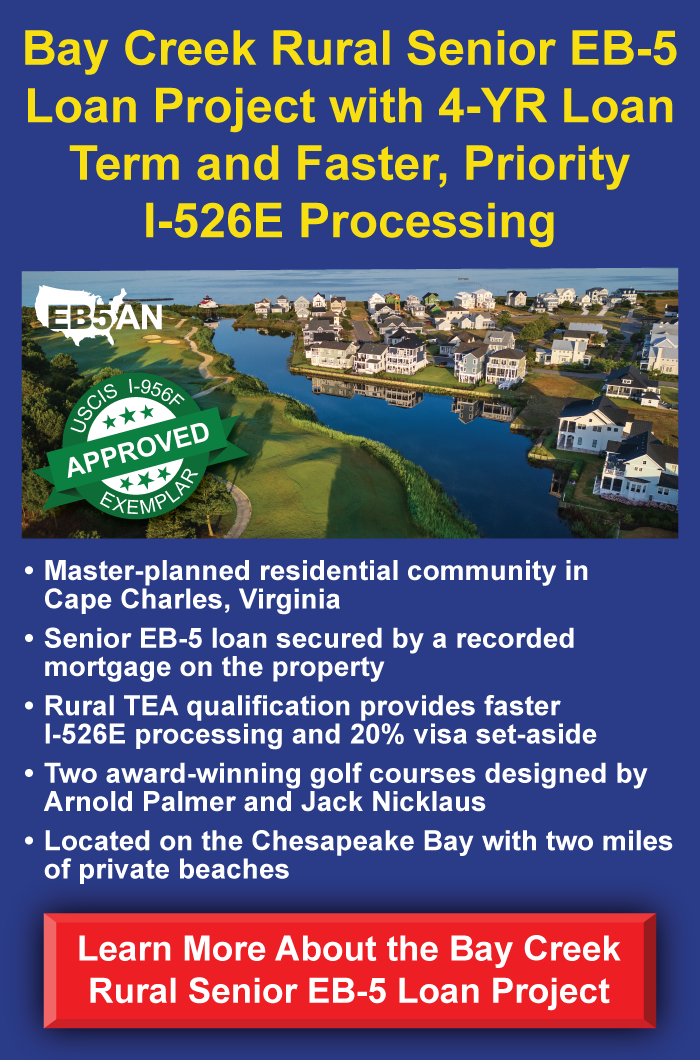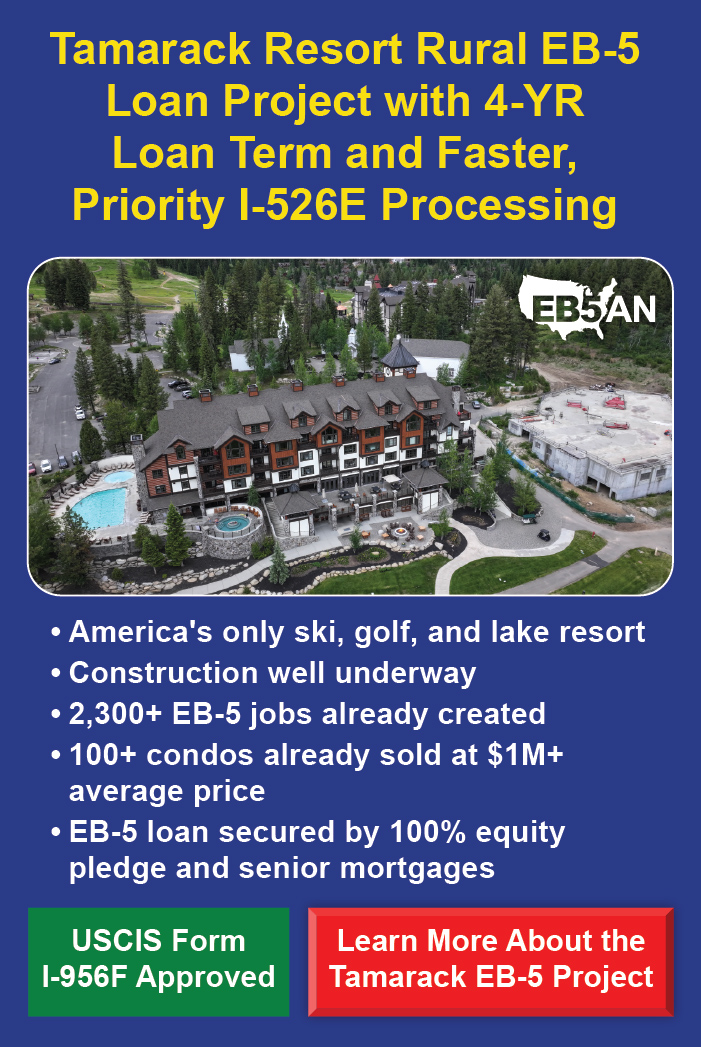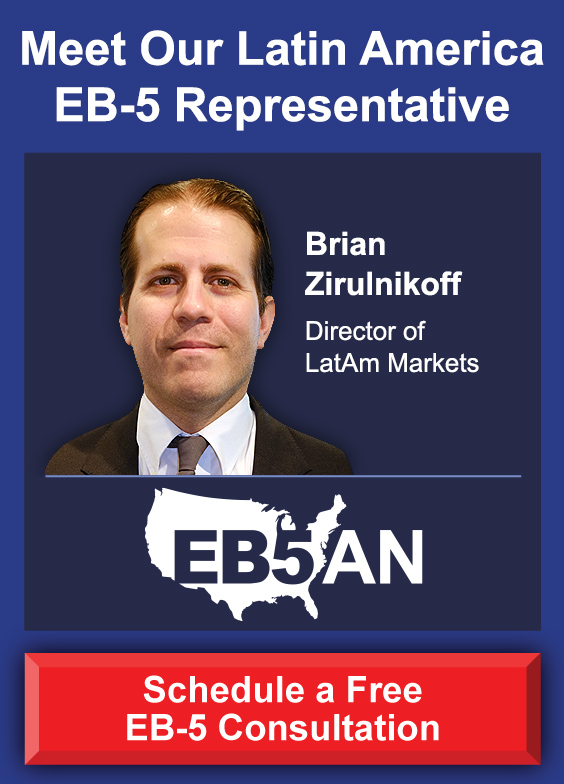The EB-5 Program offers unique opportunities for investors in Brazil to immigrate to the United States. However, despite the fact that Brazil has the largest economy and population in Latin America, few Brazilian EB-5 investors have applied for EB-5 visas over the past years. The reasons for this are twofold: Firstly, the booming economy in Brazil has not encouraged foreign investment. Secondly, there is little awareness of the EB-5 Program among investors in Brazil.
Considerations for Brazilian EB-5 Investors
As no network of migration agents exists in Brazil, investors hoping to apply for the EB-5 Program can benefit from working with an approved regional center, which will typically provide information on the U.S. immigration system as well as putting applicants in contact with qualified tax planning experts to help navigate U.S. tax requirements for foreign investors.
Brazilian investors should consider the obstacle of the U.S. tax on worldwide income. Unlike in Brazil, where the top income tax rate is 29%, the estate tax is between 4% and 8%, and there are no taxes on dividends to shareholders, nonresident aliens (NRAs) in the United States must pay high income and estate taxes. Immigration tax experts can help investors devise strategies to effectively reduce their tax burdens under the EB-5 Program, and regional centers can play a key liaising role in this regard.
The EB-5 Program offers rewards for ambitious Brazilian investors hoping to establish and manage businesses in the United States. Both Brazil and the United States have established legal systems through which to conduct business and enforce contracts, and the United States therefore stands out as a promising market for Brazilian EB-5 investors. However, an investor is not able to manage a business in the United States until his or her I-526 petition has been approved and permanent residence has been established.
Approaching the EB-5 Program as a Brazilian EB-5 Investor
Brazilian EB-5 investors often prefer to take a hands-on approach to conducting their due diligence on potential investments, regional centers, and immigration and tax planning attorneys. Familiarizing themselves with the various U.S. systems at play in the EB-5 Program allows investors to better understand the process of applying for an EB-5 visa and successfully investing in a U.S. business.
A crucial aspect of a successful EB-5 application is the ability to prove the legitimacy of funds sourced for the EB-5 investment. Immigration attorneys will play a key role in this step of the application, but investors can benefit from an understanding of the various documents required to establish credibility. These include documents to prove the founding and operation of a business, the leasing or purchase of property, and the sourcing of funds. Examples of these are listed below:
- Contrato Social and Contrato de Constituição de Sociedade Limitada
- Comprovante de Inscrição e de Situação Cadastral
- Contrato de Locação de Imóvel Não Residencial
- Records from the Cartório de Registro de Imóveis
- Contrato de Compra e Venda
- Declaração de Informações Econômico-Fiscais da Pessoa Jurídica
- Comprovante de Pagamento de Swift
- Any bank statements
- Any declaration of joint assets, as for a married couple
An experienced Brazilian EB-5 investor will be familiar with these documents, which will substantially expedite the processing time for his or her I-526 petition and thus immigration to the United States.
Immigration and Tax Planning
Once a Brazilian investor has decided to live and work in the United States, he or she might benefit from obtaining an L-1 or E-2 visa so as to immigrate quickly and establish a business. Other types of visas, such as the B-1 and B-2 visas, allow Brazilians to spend up to six consecutive months in the United States, while the F-1 and F-2 student visas may also prove helpful in that they allow dependents to attend school in the United States. Regardless, building ties to the United States is a crucial part of establishing residence under the EB-5 Program, and this often means investors choose to immigrate along with their families.
As mentioned above, NRAs face a complex hurdle with the U.S. tax system, and Brazilian investors must therefore educate themselves prior to immigration on their potential tax obligations and plan accordingly. Although the tax systems of the United States and Brazil are similar, the services of an experienced tax attorney specializing in both can prove invaluable in helping EB-5 investors prepare for immigration. For example, various strategies involving the sale or transfer of assets and the deferment of expenses allow investors to minimize their tax burdens once residing in the United States.
While the EB-5 Program was designed to attract capital at low cost from China and other countries, it has developed into a significant opportunity for investors worldwide and especially in Brazil. Regional centers can thus benefit from approaching Brazilian EB-5 investors, who are often motivated and willing to take educated risks to create successful business ventures. Increasing awareness of the EB-5 Program will result in further growth of Brazilian foreign investment in the coming years.
Brazilian EB-5 investors should seek the assistance of qualified immigration attorneys as well as tax planning and financial advisors to ensure they are in compliance with all the requirements of the EB-5 Program as well as U.S. tax and immigration laws. For investors, regional centers can act as an excellent resource as well as an avenue to achieve their investment goals.










